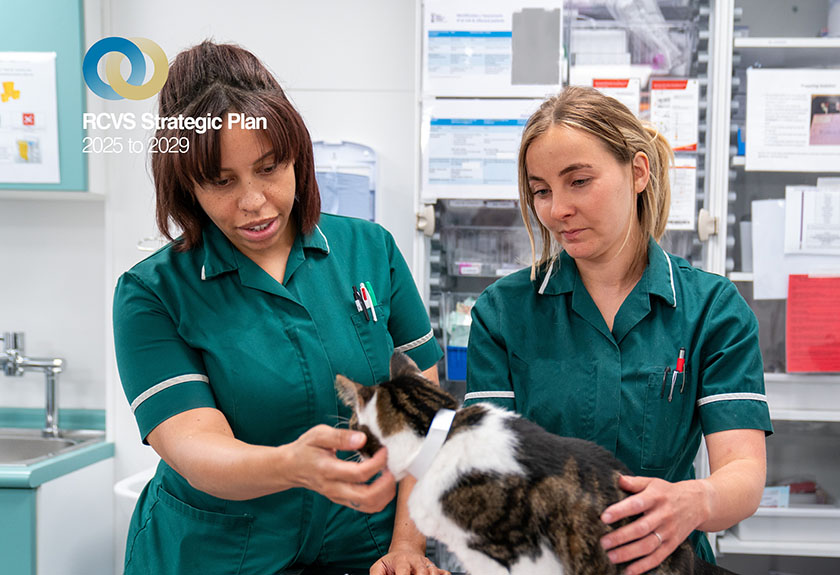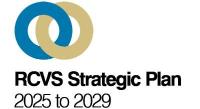-
-
- Advancement of the Professions Committee
- Standards Committee
- Audit and Risk Committee
- Education Committee
- Disciplinary Committee
- Charter Case Committee
- Preliminary Investigation Committee and Disciplinary Committee Liaison Committee
- Registration Committee
- Preliminary Investigation Committee
- Paper classification: some definitions
-
-
-
-
- About extra-mural studies (EMS)
- EMS requirements
- Information for vet students
- Information for EMS providers
- Information for vet schools
- Temporary EMS requirements
- Practice by students - regulations
- Health and safety on EMS placements
- EMS contacts and further guidance
- Extra-mural studies fit for the future
-
-
- Code of Professional Conduct for Veterinary Surgeons
- Code of Professional Conduct for Veterinary Nurses
- Contact the Advice Team
- XL Bully dog ban
- 'Under care' - guidance
- Advice on Schedule 3
- Controlled Drugs Guidance – A to Z
- Dealing with Difficult Situations webinar recordings
- FAQs – Common medicines pitfalls
- FAQs – Routine veterinary practice and clinical veterinary research
- FAQs – Advertising of practice names
- GDPR – RCVS information and Q&As
-
- Accrediting veterinary degrees
- Accrediting veterinary nursing qualifications
- Reasonable adjustments for student vets
- Health and disability in veterinary medicine study and practice
- The role of the veterinary schools and the RCVS
- Reasonable adjustments and the Equality Act 2010
- Reasonable adjustments and Day One Competences
- Examples of reasonable adjustments for vet students
- Annex
- Reasonable adjustments for student vets - summary
- Reasonable adjustments for student veterinary nurses
- Health and disability in veterinary nurse education and training
- Reasonable adjustments for students and the UK disability discrimination legislation
- Educational assessment of veterinary nurses
- Roles of key stakeholders in the application of reasonable adjustments
- Examples of reasonable adjustments for vet nurse students
- Embracing reasonable adjustments for student vet nurses - summary
- External review of the RCVS by ENQA
- Requirements for remote and online student assessments
About us
The Royal College of Veterinary Surgeons (RCVS) is an independent body established by Royal Charter in 1844.

We regulate the veterinary professions in the UK by setting, upholding and advancing veterinary standards, and support veterinary professionals to be the best that they can be.
We work to inspire confidence in veterinary care. We do this in the public interest. This means we support the needs of consumers of veterinary services, including those who keep, own or rely on animals, and, via public health, society at large.
Although our statutory role is UK-focused, we have a strong global footprint in terms of members working overseas and international veterinary professionals working in the UK. This gives us international reach, which is important as many of the issues we face – such as diseases, artificial intelligence and societal change – know no borders.
On this page
What this means for you
Our mission is to protect the public interest by ensuring animal health and welfare, and public health, are advanced through thriving, world-class veterinary professions.
How we get there
Our vision is always to be ambitious and compassionate, working collaboratively to build trust and inspire all veterinary professionals to succeed.
What we do
To fulfil our role, we:
- Accredit veterinary and veterinary nursing degree courses and training programmes;
- Maintain a register of vets and vet nurses who are qualified to practise, set and uphold standards of good professional conduct;
- Provide a framework through which vets and vet nurses can develop and thrive;
- Help our world-class veterinary professionals be confident in the care they provide;
- Award Fellowships, Certificates and Specialist and Advanced Practitioner statuses, and share knowledge, embrace innovation and support better ways of working.
What we don’t do
There are some important roles that are the responsibility of other organisations.
For example, we don't:
- Represent the interests of veterinary professionals;
- Insure or legally defend vets and vet nurses; or
- Provide animal healthcare advice.
Our values
We have updated our values since our last strategic plan. They now include ‘Collaboration’, supporting our strategic aim of being ‘stronger together’. We have also embedded our previous value of ‘Inclusion and diversity’ more fully across all our work, reflecting a more integrated approach to equality, diversity and inclusion (EDI).
Our values are:
Compassion
We will be thoughtful, respectful, listening and understanding. We will also support our teams, so they have the space, energy and time to respond compassionately.
Collaboration
We will work with stakeholders to ensure the best outcomes and hold space to debate what matters. We will be curious about a diverse range of perspectives and seek to understand all points of view.
Clarity
We will seek simplicity, be clear and consistent. We will be straight-talking, and aim to manage expectations about what is possible, acknowledging that outcomes can’t always please everyone.
Courage
For the sake of animal health and welfare, public health and veterinary standards, we will be forward-thinking, act with integrity, boldly seek opportunities for appropriate change, and hold the line where we need to, even when that may be challenging.
 Find out more
Find out more
See How we work for more about our role and responsibilities.